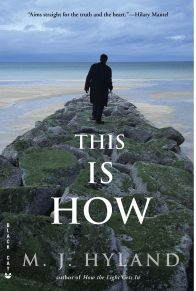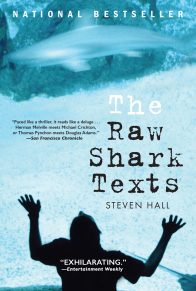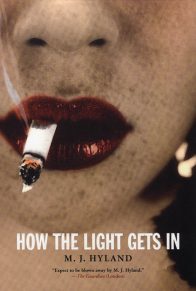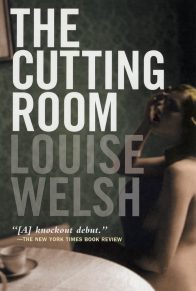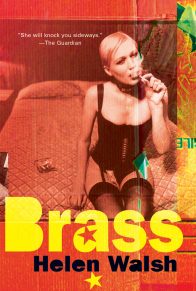“Expressively communicating the stagnant mood of 1970s Ireland, Hyland’s disquieting novel is also feverishly alert to childhood’s bewilderments and sensitively articulates the strange osmosis between the mundane and the otherworldly that enriches the narrator’s wonky perceptions of humanity.” —The Sunday Times (UK)
“A spare, piercing testimony to the bewilderment and resiliency of youth . . . John’s voice is singular and powerful throughout. . . . By the subtle, satisfying denouement, one is rooting for John’s place in the Guinness book and saving a space for him among the year’s memorable characters.” —Publishers Weekly, starred review
“Surreal, heartbreaking . . . Bizarrely theatrical . . . charming . . . John Egan’s voice . . . is an imaginative act just shy of miraculous in its subtlety and insight. . . . It is John’s believability that powers the novel. He is surreal, and peculiar, but also very alive, enmeshed in a true and fleshy sense in his family and his surroundings. . . . John Egan [is] a character the reader is privileged to meet. Hyland’s skill is commendable. Carry Me Down, in all its grossness and granular beauty, is a remarkable book.” —Anne Julia Wyman, San Francisco Chronicle
“A fast-paced psychological drama . . . Hyland’s novel is a fresh yet troubling reminder of the pain of lost innocence and the price of pursuing the truth.” —People
“In taut, simple prose, Hyland meticulously captures the specific pains of growing up poor and lonely in Ireland and deftly anatomizes her judgmental protagonist’s odd mixture of . . . little boy and grown lad.” —Michelle King, Entertainment Weekly
“Reminiscent of Mark Haddon’s The Curious Incident of the Dog in the Night-Time, this work is a worthy successor to . . . How the Light Gets In. . . . Hyland credibly evokes Egan’s agony.” —John G. Matthews, Library Journal
“The child’s naive first-person, present-tense narrative brings achingly close his helplessness in a poweful adult world. . . . The quiet plain scenes of daily life lead to the surprising and unforgettable climax.” —Booklist
“Hyland has a sharp, observant eye and is particularly good at capturing bright and unusual characters.” —Jamie Spencer, St. Louis Post-Dispatch
“Carry Me Down is uncompromising, unputdownable and done with expert lightness. It’s a work of discreet brilliance. M.J.Hyland is a truly gifted writer.” —Ali Smith, author of Hotel World and The Accidental
“Stunning . . . Carry Me Down is a tour de force character study. . . . It conveys its narrator’s apprehension of the world brilliantly. . . . There is an intense realism about this novel; I believed completely in John Egan and suffered with him. . . . Enthralling and absorbing and capable of arousing sympathy to a degree that is almost painful. At the end, my feelings for John were so strong they were like a physical ache.” —Geraldine Bedell, The Observer (London)
“Hyland has integrated all the elements of her story into a powerful whole that’s much more than the sum of its parts. . . . Vivid, disquieting and extremely hard to put down, MJ Hyland’s second novel shows a great talent in the making, a clever and subtle writer who can tap into the fears and neuroses of childhood, as well as the dynamics of a dysfunctional family, and turn it into gripping fiction.” —Alastair Mabbott, The Herald (Glasgow)
“It is difficult to combine realism and surreal interludes in a single narrative structure, but Hyland manages this effortlessly. . . . A fictional, exaggerated, but ultimately winning version of every adolescent who ever hesitated nervously on the threshold of the adult world.” —Ruth Scurr, Daily Telegraph (London)
“Recognisably true story about the necessity and danger of untruths. . . . Hyland’s big achievement is in the distinctive, engaging voice of her young narrator, which doesn’t have a phoney thing about it.” —Laurence Phelan, Independent on Sunday (London)
“John’s poetic, humorous voice has a ring of authenticity to it, too: this is a humane and compelling novel.” —Daragh Reddin, Metro Midlands (UK)
Praise for M.J. Hyland:
“Moment by moment, Hyland nails the alternating excitement and embarrassment of being a teenager. . . . [She is] a talented writer grappling with serious questions about how we make our way through the world. . . her efforts beat the hell out of tell-alls about manicures and designer jeans.” —The New York Times Book Review on How the Light Gets In
“How the Light Gets In introduces us to M. J. Hyland’s clean, sharp, fresh voice. Her narrator Lou Connor is like Holden Caulfield come back as a chick, turned up on the North Shore, and ready to do some damage.” —Rich Cohen, author of Lake Effect
“A story with grit and heart from an intelligent, perspicacious writer to watch . . . [Lou Connor is] our edgy female Holden Caulfield.” —Kirkus Reviews on How the Light Gets In
“How the Light Gets In is a cool, accomplished first novel.” —Publishers Weekly





